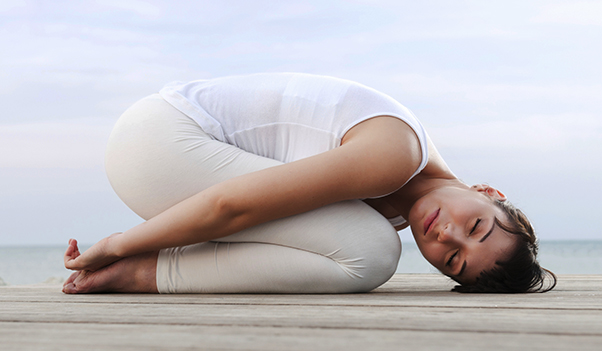Stress is alarmingly common in society and, unfortunately, something we are more susceptible to as we age. The significance of stress should not be underestimated: if left untreated, it can have serious health implications, including a greater risk of death. Exercise is key to combating stress naturally and safely, and yoga is particularly effective, no matter your age.
Benefits of Yoga
There are many approaches to tackling stress which can help keep the physical or mental health risks at bay. What makes yoga such a powerful tool is that addresses both of these areas. The mind and body are very closely linked, so keeping your physical health in good shape will inevitably have a positive impact on your mental state. In yoga, the focus on sustained stretching, breathing and meditation has invaluable benefits in seniors, including the following:
- Lowers blood pressure: the risk of having high blood pressure increases over the age of 50, and with it, the risk of heart attacks. Research indicates that the controlled breathing used in yoga helps to not only clear the mind but also reduce excessive activity in the nervous system, keeping blood pressure at a suitable level in the process.
- Increases flexibility and strengthening bones: Lack of physical exercise makes us all more prone to stiffness. In seniors, this is particularly significant because of the thinning and weakening of bones that occurs with age. Yoga postures encourage flexibility in the joints, whilst also strengthening bones and helping to combat osteoarthritis and general joint pain.
- Reduces anxiety and helps develop mindfulness: the focused breathing and sustained stretching have a calming effect on the mind, suppressing the brain’s ‘fight or flight’ response to stress and, in turn, keeping you relaxed. In doing so, yoga also encourages mindfulness – that is, enabling you to be more aware of the present moment instead of worrying about the past or future.
- Can help manage chronic pain: coping with physical pain on a long-term basis brings about a significant amount of stress in someone’s day-to-day life. The flexibility and strengthening that come about as a result of the sustained stretches can help tackle pain. Meanwhile, the mindfulness mentioned above can help tackle the emotional stress of dealing with chronic pain.
Left undealt with, high blood pressure, inflexibility, weak bones, anxiety and physical pain contribute hugely to different types of stress. Addressing each of them effectively therefore reduces overall stress in a big way, ensuring your physical and mental health. In this way, the important role yoga plays in reducing stress can never be understated.
About the Author:
Sally Perkins is a professional freelance writer with many years experience across many different areas. She made the move to freelancing from a stressful corporate job and loves the work-life balance it offers her. When not at work, Sally enjoys reading, hiking, spending time with her family and travelling as much as possible.

